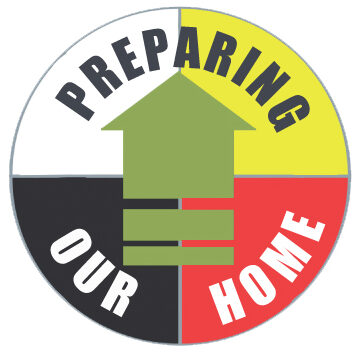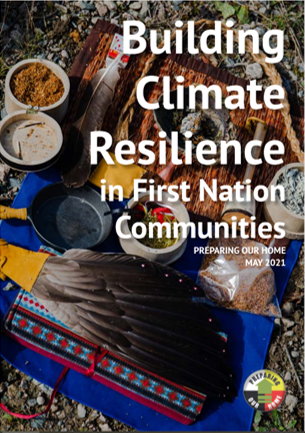Building Climate Resilience in First Nation Communities: Lessons from the Confederacy of Mainland Mi’kmaq, Siksika Nation, and Mattagami First Nation
Across Turtle Island, since time immemorial, Indigenous peoples have had Traditional Knowledge to adapt to changing environmental conditions on the land.
This synthesis report reveals that Indigenous communities in Canada are at the forefront of climate change adaptation and are faced with diverse social contexts and non-climatic factors that influence collective abilities to adapt. The evidence presented in this report suggests the following:
- Examples of self-determination for building climate resilience in First Nations communities include: community led risk assessments, intergenerational planning, and community-led organizations providing culturally appropriate services to disaster response and recovery.
- Combining western and Indigenous ways of knowing (such as the Medicine Wheel and the emergency management cycle) provides innovation in techniques for holistic knowledge translation in support of adaptive capacity building in communities.
- Indigenous Knowledge, intergenerational learning, land-based learning, participatory methodologies and the role of traditional language for community resilience are important social factors that support adaptation at the community scale.
- Differences in adaptive capacities affect communities’ ways and means of organizing to plan and assess current climate impacts and future hazards.
Building Indigenous community resilience requires addressing the impacts of colonial land dispossession, disaster and climate displacements, and the gaps in social service support for providing for the mental, cultural, spiritual health needs of displaced Indigenous peoples.
- Indigenous communities and organizations are leading the way in nature-based solutions, with long-range implications for the global climate, as well as opportunities for reconciliation, across Turtle Island.
- A path forward on meeting Indigenous socio-economic, cultural, and basic needs recognizes Indigenous rights for the co-management of environmental resources, achieved through reconciliation of the governance and territorial management of Indigenously-held land. This path also presents pivotal opportunities for global biodiversity protection, carbon sequestration, and Indigenous conservation collaborations.
Download full report here: spread version and/or page-by-page version.
Building Climate Resilience in First Nation Communities 2021
Building Climate Resilience in First Nation Communities – spread version
Recommeded citation: Yumagulova, L., Yellow Old Woman-Munro, D., MacLean-Hawes A., Naveau, D., and Vogel, B. (2021). Building Climate Resilience in First Nation Communities. Preparing Our Home.
An earlier and shorter version of this collaborative work appears in Mc- Bean G. and Kovacs, P. (Eds.). Social Sciences and Humanities Research Council Knowledge Synthesis – “Building Climate Resilient Communities”.


